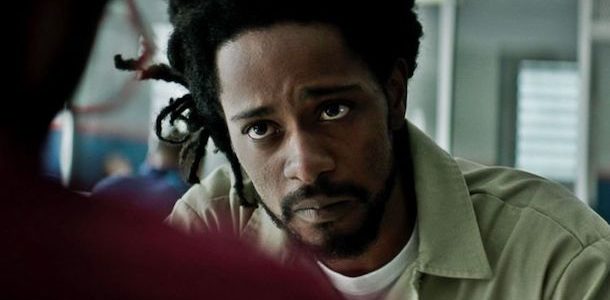
ReelBob: ‘Crown Heights’ ★★★
By Bob Bloom
Movies about wrongfully incarcerated people usually emphasize the efforts to exonerate and free them.
From “Calling Northside 777” to “The Hurricane,” the attention has been on the reporters, lawyers and family members who have fought the legal system to correct a mistake.
The focus in “Crown Heights,” though, is shifted toward the reaction of Colin Warner, arrested and imprisoned at 18 for a murder he did not commit, rather than the determination of his friend, Carl “KC” King, to undo a wrong.
This is the movie’s strong point as well as its weakness. Taking such an approach — especially in a movie that is just 99 minutes long — dilutes the impact of the narrative, giving both stories short shrift.
It’s not a spoiler to reveal that Warner is innocent, as his case was documented in an episode of the respected series, “This American Life.”
As such, the movie feels rushed and incomplete — as if writer-director Matt Ruskin is just skimming the story’s surface.
In 1980, Warner was arrested and convicted. The first act of the movie details a flawed law-enforcement system in which witnesses are coerced and intimidated by police to corroborate a plausible scenario that will make a conviction easier.
Warner’s protestations of innocence fall on an overwhelmed, uncaring and unfeeling judicial process that cares more about conviction rates than the truth.
Warner spends two years in jail before he even comes to trial. He receives inadequate counsel and is sentenced to 15 years-to-life in Dannemora prison.
While the movie does cover the usual prison trajectory — attacks by other prisoners and beatings by abusive guards — it glosses over these incidents in favor of centering on Warner’s emotional journey from the futility of proclaiming his innocence to acceptance of his situation.
In a breakout performance, LaKeith Stanfield conveys Colin’s overwhelming confusion and ignorance of being caught up in situation in which he believes the law that presumes a person innocent until proven guilty will set him free.
Stanfield’s subtle performance allows you to follow his journey from — not so much idealism — than faith in the process, to one of desperation, then cynicism and finally hopelessness.
Stanfield’s eyes are the mirror that allows us to see his fear, pain and despair.
Nnamdi Asomugha’s Carl sacrifices almost everything to uncover the facts and free his friend. He admits to Colin that he continues his uphill battle not only because Colin is his friend, but because he knows it could just as easily have been himself railroaded as easily as Colin.
Smartly, “Crown Heights” avoids emotional pyrotechnics, telling its story in a restrained and direct manner.
The movie’s biggest flaw is that Ruskin too quickly telescopes the 21-plus years that the story unfolds, robbing it of some passionate resonance.
Otherwise, “Crown Heights” is a sensitive and compelling story of the injustices of a flawed and broken judicial system that finds it easier to use its weight to beat down those on the lower rungs of society than actually uncover the truth and be fair and impartial.
I am a member of the Indiana Film Journalists Association. My reviews appear at ReelBob (reelbob.com) and Rottentomatoes (www.rottentomatoes.com). I also review Blu-rays and DVDs. I can be reached by email at bobbloomjc@gmail.com or on Twitter @ReelBobBloom. Links to my reviews can be found on Facebook, Twitter, Google+ and LinkedIn.
CROWN HEIGHTS
3 stars out of 4
(R), language, nudity, sexual content, violence